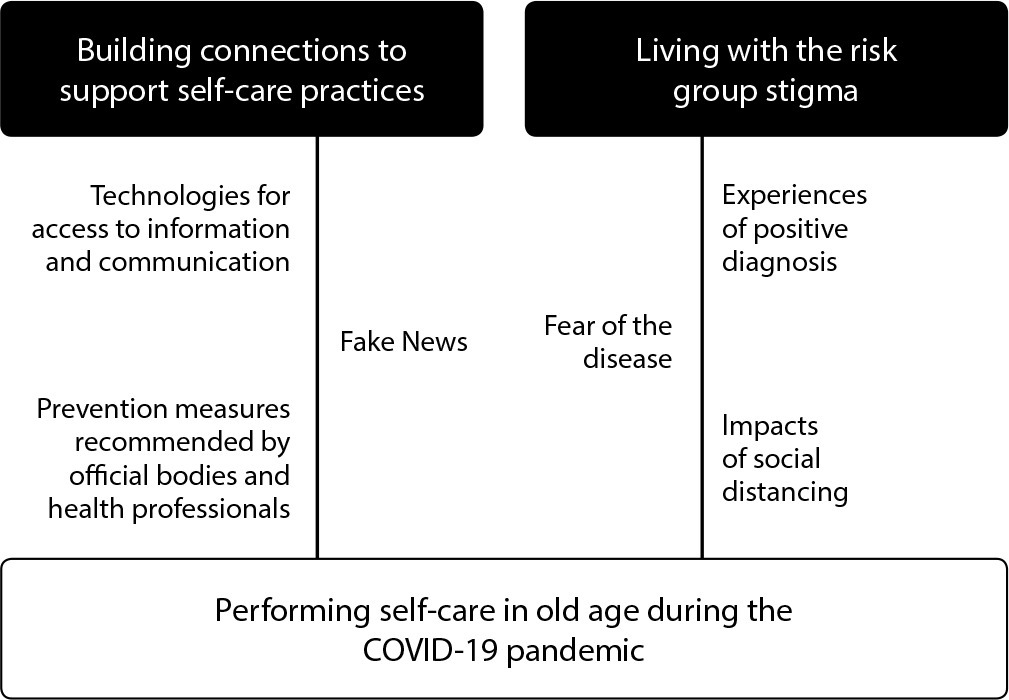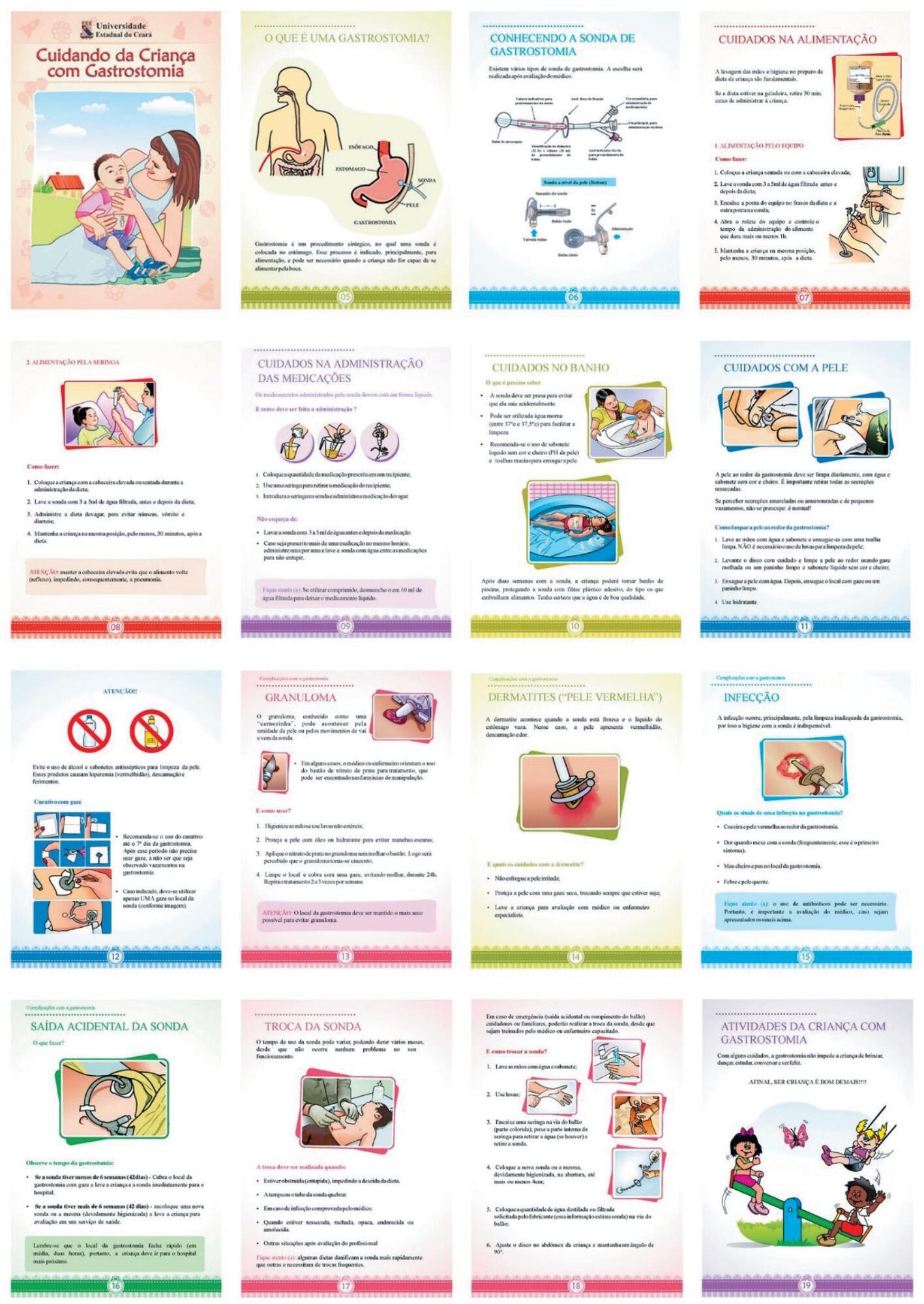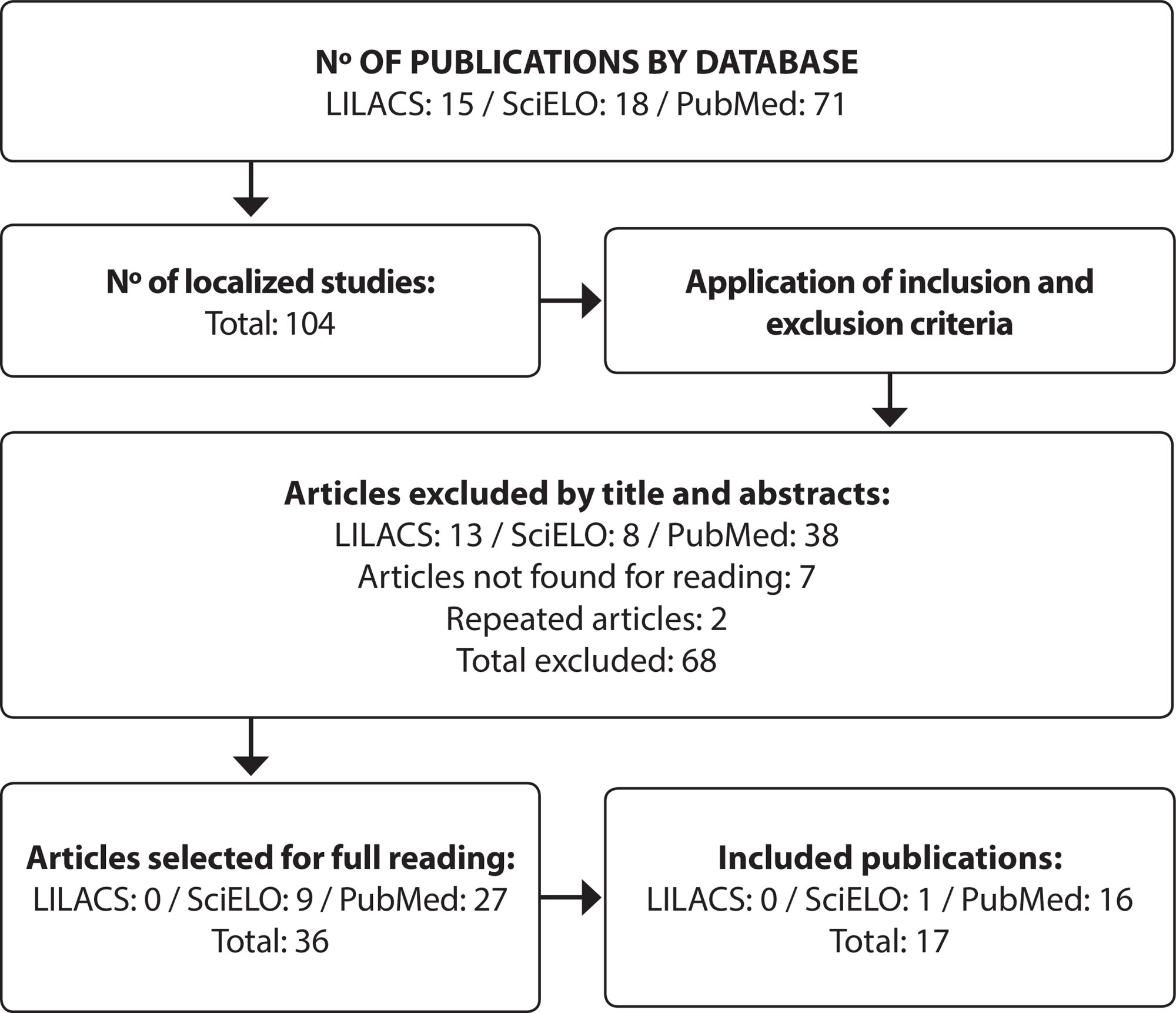-
ORIGINAL ARTICLE03-06-2023
Construct elaboration and validity of the Pregnancy Depression Risk Scale
Revista Brasileira de Enfermagem. 2023;76(2):e20220306
Abstract
ORIGINAL ARTICLEConstruct elaboration and validity of the Pregnancy Depression Risk Scale
Revista Brasileira de Enfermagem. 2023;76(2):e20220306
DOI 10.1590/0034-7167-2022-0306
Views0See moreABSTRACT
Objectives:
to elaborate and analyze the Pregnancy Depression Risk Scale psychometric properties.
Methods:
methodological research, in six steps: theoretical model empirical definition; elaboration of scale items with literature review; consultation with five professional health experts and 15 pregnant women; content validity with six experts; pre-test-semantic validity with 24 pregnant women; scale factor structure definition with 350 pregnant women; pilot study with 100 pregnant women, totaling 489 pregnant women and 11 experts. Data were analyzed by content analysis, exploratory factor analysis, multitrait-multimethod analysis and internal consistency.
Results:
sixty-eight risk factors were identified for item formulation. The final version of the scale consisted of 24 items in five domains. The scale demonstrated satisfactory construct content, semantic, validity and reliability.
Conclusions:
the scale proved to be valid in terms of content and semantics, with a factor structure defined according to the adopted theoretical model and satisfactory psychometric properties.
-
ORIGINAL ARTICLE03-06-2023
Organizational politics and professional struggles in nursing
Revista Brasileira de Enfermagem. 2023;76(1):e20220180
Abstract
ORIGINAL ARTICLEOrganizational politics and professional struggles in nursing
Revista Brasileira de Enfermagem. 2023;76(1):e20220180
DOI 10.1590/0034-7167-2022-0180
Views0See moreABSTRACT
Objective:
to analyze the professional struggles between nursing organizational entities, in Rio de Janeiro, during the Regional Nursing Council’s electoral process (1990-1993 administration).
Method:
historical study. We used journalistic articles, normative documents, legislation and semi-structured interviews with five nursing professionals who participated in this process. Interpretation of findings was supported by Bourdieu’s concepts of habitus, field, capital, and symbolic power.
Results:
Electoral Code changes of the aforementioned council, under the influence of administration (1987-1990), candidate for re-election, influenced the disclosure and eligibility criteria, making it difficult for broad participation, especially of Associação Brasileira de Enfermagem Rio de Janeiro Section.
Final considerations:
nursing, in this period, generated a field of disputes related to positions of power and gender, which was evidenced in the electoral process studied, which highlighted using limiting strategies by a group, making it difficult for the entire category to participate.
-
ORIGINAL ARTICLE03-06-2023
The self-care process of community-dwelling older adults during the COVID-19 pandemic
Revista Brasileira de Enfermagem. 2023;76:e20220644
Abstract
ORIGINAL ARTICLEThe self-care process of community-dwelling older adults during the COVID-19 pandemic
Revista Brasileira de Enfermagem. 2023;76:e20220644
DOI 10.1590/0034-7167-2022-0644
Views0See moreABSTRACT
Objectives:
to understand the self-care process of community-dwelling older adults during the COVID-19 pandemic.
Methods:
this is an explanatory study with a qualitative approach based on the constructivist Grounded Theory, carried out with 18 community-dwelling older adults. Data collection took place through interviews and content was analyzed through initial and focused coding.
Results:
two categories were obtained: “Building connections to support self-care practices” and “Living with the risk group stigma”. From their interaction, the phenomenon “Performing self-care in old age during the COVID-19 pandemic” emerged.
Final Considerations:
it was possible to identify how older adults’ experiences curing the COVID-19 pandemic had repercussions on their self-care process, being influenced by factors such as information about the disease and the impacts of risk group stigmas.

-
Palliative care strategies in the management of people with serious cases of COVID-19
Revista Brasileira de Enfermagem. 2023;76:e20220308
Abstract
Palliative care strategies in the management of people with serious cases of COVID-19
Revista Brasileira de Enfermagem. 2023;76:e20220308
DOI 10.1590/0034-7167-2022-0308
Views0See moreABSTRACT
Objectives:
to analyze the assistance strategies in palliative care developed in the COVID-19 pandemic for critically ill patients and their families.
Methods:
an integrative review carried out in August 2021 and updated in April 2022 in the Base de Dados de Enfermagem (BDENF), Cumulative Index to Nursing and Allied Health Literature (CINAHL), Medical Literature Analysis and Retrieval System Online (MEDLINE), US National Library of Medicine (PubMed), Web of Science databases, and presented in the PRISMA flowchart.
Results:
thirteen works were selected for reading and content analysis, from which emerged the two main themes that reflect the reality evidenced in this context: The sudden advent of COVID-19 with impacts on palliative care; and The strategies used in palliative care to mitigate these impacts.
Final Considerations:
palliative care is the best strategy for providing health care, used as a comfort to bring relief and comfort to patients and families.

-
ORIGINAL ARTICLE02-06-2023
Teaching entrepreneurship in undergraduate Nursing course: evaluation of an educational proposal
Revista Brasileira de Enfermagem. 2023;76(2):e20210244
Abstract
ORIGINAL ARTICLETeaching entrepreneurship in undergraduate Nursing course: evaluation of an educational proposal
Revista Brasileira de Enfermagem. 2023;76(2):e20210244
DOI 10.1590/0034-7167-2021-0244
Views0See moreABSTRACT
Objective:
To evaluate a proposal for teaching entrepreneurship in an undergraduate Nursing course that uses active methodologies and activities based on the theory of meaningful learning.
Methods:
Interventional, prospective study, with a quantitative perspective, with a total of 102 participating students, carried out from July 2017 to December 2019 at a public university in the state of Sao Paulo. Statistical analysis were performed by non-parametric Chi-square or Fisher’s exact tests, with differences considered statistically significant if p < 0.05.
Results:
Improvements were observed in almost all items evaluated, revealing that meaningful learning became more effective with the use of active teaching methodologies. Most students need adaptation and effort to be put into these methods.
Conclusions:
The proposal offers pedagogical content adaptation, specifically for nursing students. New research should expand teaching-learning techniques for the development of future nurses, preparing them adequately for the job market.

-
ORIGINAL ARTICLE02-06-2023
Nurses’ Work Methods Assessment Scale: a study of content validation
Revista Brasileira de Enfermagem. 2023;76(2):e20220396
Abstract
ORIGINAL ARTICLENurses’ Work Methods Assessment Scale: a study of content validation
Revista Brasileira de Enfermagem. 2023;76(2):e20220396
DOI 10.1590/0034-7167-2022-0396
Views0See moreABSTRACT
Objective:
To develop and validate the content of the Nurses’ Work Methods Assessment Scale.
Methods:
Methodological study conducted between January and February 2022, based on the Quality Standards for Nursing Care and Imogene King’s framework. A literature review was previously undertaken to design the scale. The content validation was carried out by 23 experts.
Results:
The initial version consisted of 40 items organized in four work methods identified in the literature. In the first dimension, from ten items, seven were considered, and one was reformulated. Seven of the initial ten items were considered in the second version. The third dimension consisted of seven items. In the fourth dimension, three items were reformulated, and three were excluded, leaving seven items. The final version ended with 28 items, whose Content Validity Index ranged between 0.83 and 1.
Conclusions:
The involvement of experts has become pivotal in the development and validation of the items, providing confidence to the continuity of psychometric procedures.
-
ORIGINAL ARTICLE09-16-2019
Validation of educational booklet: an educational technology in dengue prevention
Revista Brasileira de Enfermagem. 2019;72(5):1318-1325
Abstract
ORIGINAL ARTICLEValidation of educational booklet: an educational technology in dengue prevention
Revista Brasileira de Enfermagem. 2019;72(5):1318-1325
DOI 10.1590/0034-7167-2018-0771
Views0See moreABSTRACT
Objective:
to validate a booklet on dengue prevention in order to make it an educational technology to be used with the population.
Method:
methodological study, carried out with two groups of judges specialized in health and other areas. For data analysis, the calculation of Content Validity Index was carried out.
Results:
the booklet, in general, was considered valid by the expert judges, since it obtained an overall CVI of 70%. However, it has undergone a textual and aesthetic re-elaboration. The changes were based on the substitution of expressions, phrases, information additions and language adequacy. The illustrations were redone, adding clarity, expressiveness, movement, interaction and contextualization.
Conclusion:
the booklet is valid to be used for the population, with the purpose of informing, in a playful way, the forms of prevention and combat to mosquito transmitting dengue.

-
REVIEW09-18-2020
Mental health of healthcare professionals in China during the new coronavirus pandemic: an integrative review
Revista Brasileira de Enfermagem. 2020;73:e20200338
Abstract
REVIEWMental health of healthcare professionals in China during the new coronavirus pandemic: an integrative review
Revista Brasileira de Enfermagem. 2020;73:e20200338
DOI 10.1590/0034-7167-2020-0338
Views0See moreABSTRACT
Objective:
to identify publishing related to the mental health of health professionals working in the front line of the COVID-19 pandemic.
Methods:
an integrative review that included primary articles indexed in the Latin American and Caribbean Literature in Health Sciences, Medical Literature Analysis and Retrieval System Online, Cumulative Index to Nursing and Allied Health Literature, Scopus, Embase, Web of Science, Science Direct databases and US National Library of Medicine databases. The result analysis was performed descriptively, in four analytical categories.
Results:
The publishing involved aspects related to insufficient personal protective equipment, feelings of fear and stigma, the need for psychological and psychiatric support and the possibility of post-outbreak mental disorders.
Conclusion:
All mentioned aspects have a direct impact on the mental health of professionals, demanding the creation of strategies that minimize the emotional burnout of workers, considering that each country and culture reacts differently to the disease.

-
ORIGINAL ARTICLE06-27-2019
Religious/spiritual coping and level of hope in patients with cancer in chemotherapy
Revista Brasileira de Enfermagem. 2019;72(3):640-645
Abstract
ORIGINAL ARTICLEReligious/spiritual coping and level of hope in patients with cancer in chemotherapy
Revista Brasileira de Enfermagem. 2019;72(3):640-645
DOI 10.1590/0034-7167-2018-0358
Views0See moreABSTRACT
Aim:
To demonstrate the relationship between religious/spiritual coping and hope in cancer patients undergoing chemotherapy.
Method:
This is a cross-sectional, descriptive study with a quantitative approach performed in a reference outpatient clinic in Caruaru, PE, between August and October 2017. A total of 82 cancer patients undergoing chemotherapy were included in the study, using the brief religious/spiritual coping scale (RCOPE-Brief) and the Herth Hope Scale (HHS).
Results:
The sample presented mean positive RCOPE scores (3.03 ± 0.41) and the level of hope was considered high (42.7 points ± 3.67). Patients who had a high RCOPE score were found to have a higher mean of Herth’s level of hope (44.12 points).
Conclusion:
This study becomes relevant to nursing professionals by encouraging care that takes into account the patient’s spiritual dimension in order to stimulate positive mechanisms of religious coping and, consequently, raise the levels of hope.
-
ORIGINAL ARTICLE04-22-2020
Construction and validation of an educational booklet on care for children with gastrostomy
Revista Brasileira de Enfermagem. 2020;73(3):e20190108
Abstract
ORIGINAL ARTICLEConstruction and validation of an educational booklet on care for children with gastrostomy
Revista Brasileira de Enfermagem. 2020;73(3):e20190108
DOI 10.1590/0034-7167-2019-0108
Views0See moreABSTRACT
Objectives:
to describe the process of construction and validation of an educational booklet on care for children with gastrostomy, directed to caregivers.
Methods:
a methodological study developed in five stages: bibliographic survey; situational diagnosis; illustration, layout, design and text construction; expert validation and Flesch-Kincaid Readability calculation; validation with the target audience. Content Validity Index and Suitability Assessment of Materials were applied for expert analysis.
Results:
the Content Validity Index obtained overall score of 0.93. In the Suitability Assessment of Materials score, the booklet scored 85.2%. It presented a satisfactory readability percentage, with an overall score of 72%, and was consistent with caregivers’ assessment in the validation with the target audience, considering the explanatory technology, important and adequate.
Conclusions:
the developed educational booklet was considered valid for use by caregivers, thus contributing to the maintenance of best practices in care for children with gastrostomy.

-
REVIEW12-05-2019
Hospital transition care for the elderly: an integrative review
Revista Brasileira de Enfermagem. 2019;72:294-301
Abstract
REVIEWHospital transition care for the elderly: an integrative review
Revista Brasileira de Enfermagem. 2019;72:294-301
DOI 10.1590/0034-7167-2018-0286
Views0See moreABSTRACT
Objective:
to identify evidence of scientific production on hospital transition care provided to the elderly.
Method:
an integrative review, with publications search in the MEDLINE, PubMed, LILACS, BDENF, Index Psychology and SciELO databases, with keywords and Mesh terms: elderly, hospitalization, patient discharge, health of the elderly, and transitional care, between 2013 and 2017 in English, Portuguese and Spanish. The 14 selected articles analysis was carried out through exploratory and critical reading of titles, abstracts and results of the researches.
Results:
transitional care can prevent re-hospitalizations as they enable rehabilitation, promotion and cure of illnesses in the elderly.
Final considerations:
transitional care implies the improvement of the quality of life of the elderly person, requiring skilled health professionals who involve the family through accessible communication.

-
ORIGINAL ARTICLE12-21-2020
Development of an appearance validity instrument for educational technology in health
Revista Brasileira de Enfermagem. 2020;73:e20190559
Abstract
ORIGINAL ARTICLEDevelopment of an appearance validity instrument for educational technology in health
Revista Brasileira de Enfermagem. 2020;73:e20190559
DOI 10.1590/0034-7167-2019-0559
Views1ABSTRACT
Objectives:
to develop and evaluate the convergence of the instrument for the appearance validity of educational technologies in health.
Methods:
methodological study conducted in two steps. In step 1, the instrument items were developed, with subsequent content validity by nine specialists in the development of educational technologies in health. In step 2, the convergent validity between another instrument and the appearance instrument was performed. Correlation results above r> 0.3 and p <0.05 were considered as plausible convergent validity.
Results:
the ten items of the initial version of the appearance instrument were submitted to content validity that resulted in a final version with 12 items (Content Validity Index = 0.93). The correlation indexes were strong with the objective and appearance domains; moderate with motivation, organization and total; and weak with writing style.
Conclusions:
the appearance instrument demonstrated content validity and convergent validity, in addition to a strong correlation with the other instrument.
Keywords:Educational TechnologyHealth EducationMethodological Research in NursingTechnological DevelopmentValidation StudiesSee more -
ORIGINAL ARTICLE02-10-2020
Burnout among nursing students: predictors and association with empathy and self-efficacy
Revista Brasileira de Enfermagem. 2020;73(1):e20180280
Abstract
ORIGINAL ARTICLEBurnout among nursing students: predictors and association with empathy and self-efficacy
Revista Brasileira de Enfermagem. 2020;73(1):e20180280
DOI 10.1590/0034-7167-2018-0280
Views0See moreABSTRACT
Objective:
to analyze burnout, its predictors and association with empathy and self-efficacy among nursing students.
Method:
cross-sectional analytical study with 284 students from five state universities in the state of Parana, Brazil. The instruments applied were: social and academic questionnaire, Maslach Burnout Inventory, Interpersonal Reactivity Index and Occupational Self-Efficacy Scale (Short Form). Spearman’s correlation and univariate and multivariate logistic analysis were used.
Results:
6.0% of the students presented high burnout, 36.3% presented high emotional exhaustion, 37.7% presented high depersonalization and 28.2% presented low personal accomplishment. The burnout predictors were: absence of physical activity; weekly workload >24 hours; low empathic concern. There were negative correlations between empathy (empathic concern and perspective taking) and depersonalization; self-efficacy and emotional exhaustion; and positive correlations between personal accomplishment and empathy and self-efficacy.
Conclusion:
Personal factors and an academic variable were burnout predictors among nursing students. The correlations suggest that self-efficacy and empathy can prevent burnout.
-
REVIEW08-07-2020
Positive aspects of authentic leadership in nursing work: integrative review
Revista Brasileira de Enfermagem. 2020;73(6):e20190118
Abstract
REVIEWPositive aspects of authentic leadership in nursing work: integrative review
Revista Brasileira de Enfermagem. 2020;73(6):e20190118
DOI 10.1590/0034-7167-2019-0118
Views0See moreABSTRACT
Objective:
To identify and analyze the existing scientific production on the positive aspects of authentic leadership in the nurse’s work process.
Method:
This is an integrative literature review. The databases used were Scientific Electronic Library Online; Latin American and Caribbean Literature on Health Sciences; and National Library of Medicine – National Institutes of Health.
Results:
In this study, 17 articles were selected for analysis; 1 study (6%) was published in a national journal, and 16 (94%) were international studies. Of the 17 (100%) articles studied, 11 (65%) were developed in Canada. The hospital environment was present in the 17 (100%) articles.
Final considerations:
Authentic leadership has several positive aspects that significantly influence the nurse’s work process, such as engagement and job satisfaction, retention of new nurses, organizational commitment, among others.

Search
Search in:
Nuvem de Tags
Aged (144) Atenção Primária à Saúde (239) COVID-19 (104) Cuidados de Enfermagem (269) Educação em Enfermagem (151) Educação em Saúde (139) Enfermagem (930) Estudos de Validação (131) Health Education (144) Idoso (208) Mental Health (149) Nursing (987) Nursing Care (306) Patient Safety (151) Primary Health Care (284) Qualidade de Vida (104) Quality of Life (106) Saúde Mental (145) Segurança do Paciente (150) Validation Studies (108)





